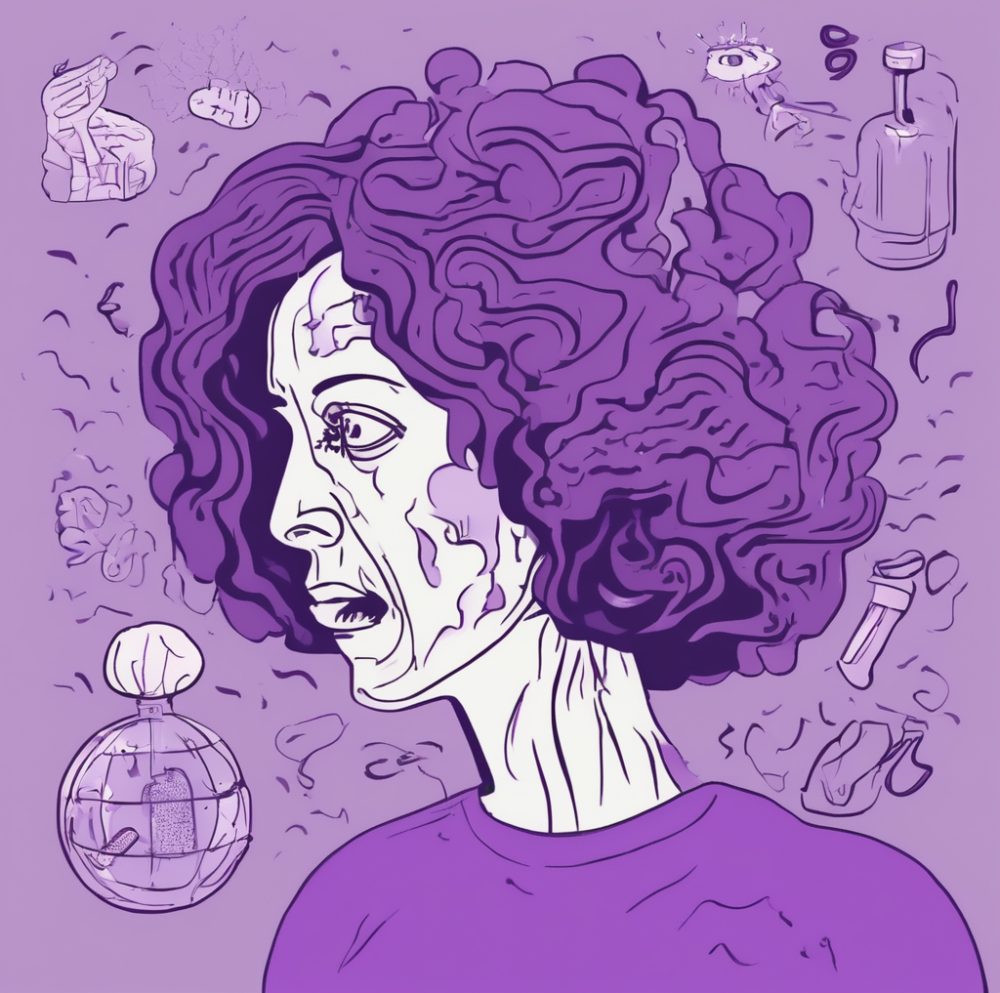What Are The Signs And Symptoms Of Schizophrenia
Schizophrenia, often misunderstood, is a complex mental health disorder that affects a person’s thinking, feeling, and behavior. The perception of schizophrenia is sometimes shadowed by stereotypes and inaccuracies, which is why I stress the importance of clear, factual information.
Recognizing the signs and symptoms of schizophrenia is crucial, not just for healthcare professionals but also for patients and their loved ones. Early detection can make a significant difference in the management of the condition and overall quality of life.
In this article, I’m not only going to address the more well-known symptoms but also shine a light on the lesser-known ones. Understanding the full spectrum of signs is pivotal for a nuanced view of this condition and to foster empathy for those affected.
Let’s move on to the core symptoms first and then delve into the full array, including those that may not be as prominent or widely discussed. Staying informed is key, as is maintaining an open and respectful dialogue about mental health.
Recognizing the Hallmark Symptoms of Schizophrenia
I’m often asked about what is the most common symptom of schizophrenia. It’s no single experience but rather a mix of them, with reality distortion often standing out. People with schizophrenia may believe, see, or hear things that aren’t real, and this reality distortion can be profoundly disorienting, not only for those experiencing it but also for their loved ones. To understand the full scope, we need to look at the so-called ‘positive symptoms’.

Hallucinations are a major player in this mix. They can take the form of voices, visions, or other sensory experiences that seem as real as any other part of day-to-day life. Then there are delusions, which are strong beliefs in things that are clearly not true or based in reality. These aren’t just temporary misunderstandings; they’re persistent and can lead to significant distress.
Read More: Anxiety Relief 101
It’s not just thoughts and perceptions that are affected. Schizophrenia can scramble the way a person speaks and acts, which can make regular communication and daily tasks incredibly challenging. Hearing someone with schizophrenia talk might reveal clues like jumping from topic to topic or responding to questions with unrelated answers.
This disruption to thought and communication doesn’t only impact the person with schizophrenia. It can strain relationships and make social interaction laborious. Imagine regularly misinterpreting social cues or struggling to follow a conversation – it can be an isolating experience, and that isolation only feeds into the cycle of symptoms.
In the next section, I’ll cover the negative symptoms that often remain under the radar. While positive symptoms thrust into the limelight, it’s the negative symptoms that often erode quality of life silently. Understanding these is KEY to grasping the full picture of schizophrenia.
Understanding the Negative Symptoms That Often Go Unnoticed
Schizophrenia isn’t only about the overt, dramatic symptoms many people are familiar with. A nuanced understanding of the disorder also requires recognizing its negative symptoms, which can be as debilitating as the hallmark features.
So, what are these negative symptoms? They’re characterized by an absence or decline in normal function. Unlike the more noticeable hallucinations or erratic behaviors, they manifest as emotional flatness or apathy, a pervasive lack of interest or drive to engage with the world. These indicators may not stand out because they resemble behaviors seen in depression or even general fatigue.
These symptoms often remain unnoticed because they develop slowly and aren’t as disruptive in their early stages. A person may withdraw from their social circles and activities subtly, which can be mistaken for a passing phase or a personality quirk. However, for individuals with schizophrenia, these are signs of a deepening struggle.
People with schizophrenia might also show a lack of enthusiasm toward life’s pleasures and accomplishments. Even successes that should spark joy can elicit muted responses – it may not always be the case, but it’s best to know this information beforehand so we can be more aware of our loved ones who are currently struggling with this condition. The mentioned symptom above can complicate relationships and career prospects, making it harder to maintain a sense of productivity and purpose.

These negative symptoms pose the challenge of being both less obvious and less responsive to medication. Therefore, they can persist even when other aspects of the disorder are managed. Understanding these traits is critical to providing comprehensive support to those affected.
Lesser-Known Cognitive and Affective Symptoms
Many discussions about schizophrenia focus on the more dramatic symptoms like hallucinations and delusions. Yet, cognitive and affective symptoms often impact daily functioning profoundly, although they may garner less attention.
Cognitive symptoms, for example, can manifest as difficulty in concentrating or remembering important details. This might interfere with a person’s ability to engage effectively in work or in orchestrating the tasks of day-to-day life.
Read More: Creating Healthy Boundaries
In addition to cognitive challenges, individuals may also experience affective symptoms. These include disturbances in mood, such as depression or bipolar-like episodes. It’s crucial to acknowledge that while these symptoms might resemble other disorders, in the context of schizophrenia, they can significantly complicate the clinical picture.
These lesser-known symptoms need to be highlighted because they play a vital role in reaching an accurate diagnosis. The cognitive and affective symptoms of schizophrenia can be debilitating, yet with targeted interventions, many individuals find ways to manage these complexities and lead full, productive lives.
If you or someone you care about is showing signs of cognitive or affective disruptions, it’s wise to consider these as potential indicators of schizophrenia, especially if accompanied by other symptoms I’ve described previously. Recognizing this full spectrum is vital to seek appropriate help.
When to Seek Help: Navigating Diagnosis and Treatment
Realizing you or someone close to you might show signs of schizophrenia can feel overwhelming. I’m here to tell you it’s a crucial first step to seeking help. It’s not about labelling or stigmatizing; it’s about understanding and getting the necessary support. When symptoms persist and interfere with life, it’s time to talk to a doctor.

When approaching diagnosis, expect assessments that cover the range of symptoms we’ve discussed. A healthcare professional will evaluate mental health history, symptoms, and their impact on functioning. Remember, getting a diagnosis is about crafting a path to better health, not about assigning fault.
Treatment plans for schizophrenia are as unique as the individuals they serve. They often include medication, therapy, and community support. I advise you to keep an open dialogue with your healthcare team and stay informed about your options.
Support systems play an invaluable role. From family and friends to support groups and healthcare providers, a network of support can make managing schizophrenia more manageable. Lastly, know that advancing treatments and understanding of schizophrenia are creating better outcomes for many.
We All Love Guidance in Though Times, Right?
Are You Ready to Take Your Mental Health to the Next Level?
For too long, getting the mental health support you need has meant waiting weeks for an appointment, scheduling around a therapist’s limited availability, and feeling anxious about traveling to an office. What if I told you there was a better way – a way to access licensed therapists anytime, from anywhere, completely anonymously?
Introducing Online-Therapy.com – the most complete online therapy service available today. Here you’ll get so much more than just therapy. You’ll get an entire toolbox of evidence-based mental health resources designed to help you feel happier, healthier, and in control.
With Online-Therapy.com, you’ll be matched with a dedicated, licensed therapist who you can message from your phone or laptop whenever you need support. No more waiting around hoping a cancellation opens up. Your therapist is there for you 24/7 through a private, encrypted messaging system.
In addition to live messaging, you’ll get access to CBT worksheets, a journal, an activity planner, yoga videos, and more. Our therapists will assign tailored exercises and activities to help you work through what’s troubling you using proven therapeutic techniques.
But don’t just take my word for it – over 4,800 verified customer reviews rate Online-Therapy.com as the most effective online mental health program available. Users consistently report feeling less anxious, more in control of their thoughts and behaviors, and better equipped to handle life’s challenges.
The best part? Signing up is fast, easy, and completely confidential. You don’t even need to provide your name if you don’t want to. A new you is just a click away.
Are you ready to start taking charge of your mental well-being? To finally access the support you need without hassle or stigma? Then what are you waiting for? Click here to take our quick assessment and get matched with your perfect therapist today. Your happier future starts now!
Pssst: this doesnt happen often, but I’m providing you with a special 20% OFF your first session. You will have access to this offer by clicking any of the Online-Therapy.com links and typing THERAPY20!

Hello Stephanie,
Thank you for taking the time to write this informative and thoughtful post about the signs and symptoms of schizophrenia. I appreciate you bringing more nuance and understanding to a condition that is too often misunderstood.
You have done extensive research into the full spectrum of schizophrenia symptoms, including the lesser-known negative and cognitive/affective symptoms. Highlighting these is so important, as they can be just as debilitating as the more overt positive symptoms like hallucinations and delusions. Your balanced portrayal shows great empathy.
I especially appreciate the care you took to encourage open dialogue and timely treatment while avoiding stigma or judgment. Seeking diagnosis is a courageous step, and you make it very clear that the goal is to find the right support and treatment plan for each individual. I also like how you focused on the role of community in managing schizophrenia. Having a solid support system can make all the difference.
Posts like yours that are factual, compassionate and non-judgmental are exactly what we need to advance the conversation around mental health. Thank you for putting in the work to educate and inform. I have no doubt your post will help many on their journey toward wellness.
Please keep up the great work!
Eric
Thank you for all of the encouraging words, Eric. There must be no shame or stigma when it comes to any mental health condition. We all must stay informed on all these issues that affect so many individuals. Keeping an open mind and knowing where we can help, and how we can do it, that’s crucial.
Hello. You did a fantastic job here. I always thought schizophrenia was just hearing voices. I had no idea that they could also have visions. What a rough mental illness that must be. I myself battle with depression anxiety. But people with schizophrenia generally they are not very common. You don’t hear enough about them today. you’re doing great work here.
You are completely right. It’s a very complex condition that doesn’t get enough exposure, nor the attention that it requires. It’s great to see that I have potentially shinned some light into what schizophrenia really is, and not just what people think it is.
That was really eye opening, and now i see why Schizophrenia is such a complex and often misunderstood condition. By outlining the various symptoms with clarity and empathy, you are helping to increase awareness and reduce stigma surrounding mental health ailments. Your efforts to educate others about the challenges individuals with this condition face are commendable, and your compassionate approach in discussing this topic is really remarkable. Thank you for sharing.
Elias
Thank you, Elias, for taking the time to read and understand this condition and all its complexities. Not everyone goes into this topic with an open mind of understanding, but you did. Kindness goes a long way.
HI Stephanie,
I have known families that have had to navigate this issue with a family member. Also recently, there was homeowner on our street that was dealing with schizophrenia, the effects being enhanced by his drug use.
Thank you for this comprehensive overview of schizophrenia symptoms. It’s so important to dismantle the misconceptions surrounding this complex condition and provide accurate information. Your breakdown of both the positive and negative symptoms, as well as the cognitive and affective aspects, offers a holistic understanding that is crucial for both individuals experiencing schizophrenia and their support networks. I appreciate the emphasis on early detection and seeking help when needed.
My question is: What advice would you give to someone who suspects a loved one may be experiencing some of these symptoms but is unsure how to approach the topic or encourage them to seek help?
Best,
Scott
Hi Scott!
Thank you for being so understanding of the topic and recognizing the complexity of it all. Personally, I’ve dealt with a close family member who suffer from schizophrenia, and it has been the most challenging thing. It’s difficult to pinpoint an exact window of suggestions about how to approach the situation. A strong support system would be of huge help. Schizophrenia patients don’t usually accept the diagnosis, or even having someone mention it to them. Therefore, it is important to dive in with caution. Simple questions, slowly navigation the topic without being obvious, and understanding are the best ways to approach the person.
hello there,
Your approach to discussing schizophrenia is comprehensive and compassionate. By addressing both the well-known symptoms and the lesser-known ones, you’re providing a more nuanced understanding of the disorder. This approach not only helps combat stereotypes but also fosters empathy and support for individuals and their loved ones who are dealing with schizophrenia.
Highlighting the positive symptoms like hallucinations and delusions, as well as the negative symptoms such as emotional flatness and apathy, allows readers to grasp the full impact of the disorder. Moreover, shedding light on cognitive and affective symptoms underscores the complexity of schizophrenia and emphasizes the importance of a holistic approach to diagnosis and treatment.
Your guidance on when to seek help and how to navigate diagnosis and treatment is practical and reassuring. By encouraging readers to approach diagnosis without fear of stigma and emphasizing the value of support systems, you’re empowering individuals to take proactive steps toward managing their mental health.
Your article serves as a valuable resource for anyone seeking to understand schizophrenia better and navigate the challenges associated with it. Well done!
Gemma
Hi Gemma!
Thank you for having such a kind approach towards this topic. Understanding, helping, listening, and bearing witness, are some of the things that patients with this diagnosis often need. It is important to have a doctor by hand to whom the individual can reach out and ask for help. Your comprehension towards this topic goes a long way. I hope you can share this and spread the message.